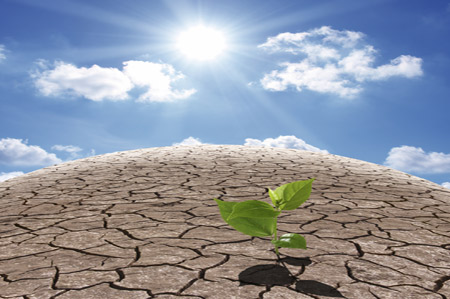Value of Australian Agricultural Goods to Fall for 3rd Straight Year Amid Drought
Category: Weather

(Reuters) – Australia on Tuesday said the value of its agricultural goods will fall for the third straight year, a milestone last seen six decades ago, as a drought wilts crops and leaves dams dry.
The value of all farm products will total A$61 billion ($41.4 billion) during the 2019/20 season, a fall of about 3% from last season, the Australian Bureau of Agricultural and Resource Economics and Sciences (ABARES) said.
The impact on rural exports would be even greater with agricultural export earnings to fall 8% to A$45 billion, it added.
“The effects of the continuing drought are becoming more pronounced with falling production and high input costs presenting serious challenges in many regions, especially in New South Wales and Queensland,” ABARES said in an emailed statement.
With almost no rainfall for months, the country’s chief commodity forecaster trimmed its forecast for wheat exports by 15.2% and lowered its outlook for milk production by nearly 2%.
The decline has crippled growers and exporting companies, and has provided a hurdle to an economy that is already threatening to stall.
Australia’s rural sector is worth about 2% of its economy.
ABARES pegged wheat exports at 9.22 million tonnes, down from its forecast in September of 10.87 million tonnes.
Australia is typically the world’s fourth-largest exporter of wheat, but the drought will see it lose market share into key markets such as Indonesia and Korea, while local millers are being forced into rare imports.
In November, Australia’s biggest listed bulk grain handler GrainCorp Ltd posted its largest loss in more than 20 years and warned that next year would even weaker.
Australian milk production was seen at 8.53 billion litres (2.3 billion gallons), down from its previous estimate of 8.68 billion litres.
As production falls, Australia’s Bega Cheese Ltd in October said its 2020 profits would be hurt.
While the dry weather would reduce production of some commodities, ABARES said the drought would increase output of beef as graziers are forced to cull livestock as they are unable to feed and water their livestock when pasture wilts and dams run out of water.
Beef production was seen at 2.26 million tonnes, up more than 10% from ABARES’ previous forecast of 2.05 million tonnes in September.
The dry, arid land has also contributed to Australia’s bushfire crisis.
Bushfires have killed at least four people and destroyed more than 400 homes since the start of November. Fires are still burning in New South Wales, Victoria, South Australia and Queensland states.

